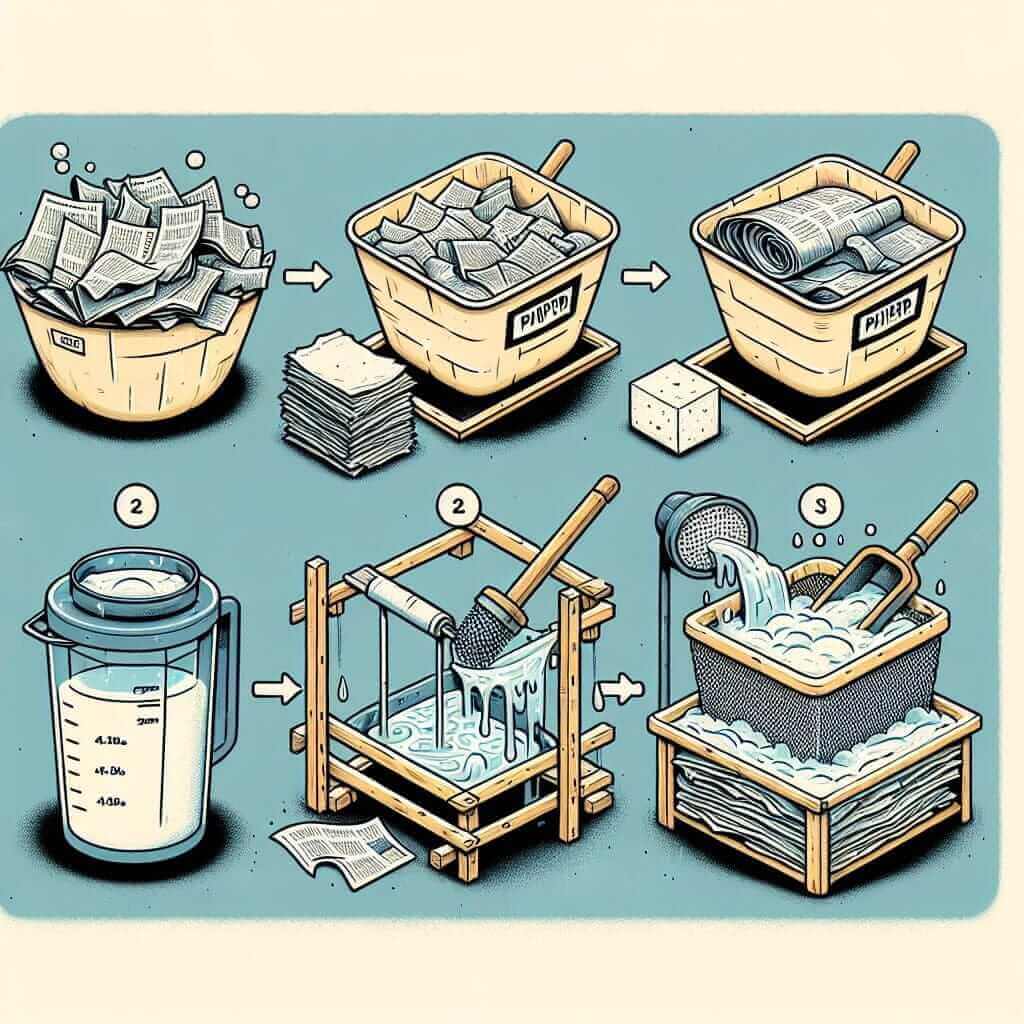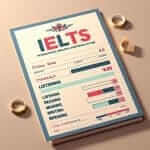As an IELTS instructor with over 20 years of experience, I often get asked about specific topics that might appear in the IELTS Speaking test. One such topic is the process of recycling, particularly how to make recycled paper from old newspapers.
Knowing how to articulate this process clearly and effectively can be incredibly beneficial, potentially giving you an edge in your IELTS Speaking exam. It demonstrates not only your vocabulary range but also your understanding of environmental issues, a common theme in the IELTS test.
Why is Describing a Process Important for IELTS Speaking?
The IELTS Speaking test assesses your ability to communicate effectively in English. Part of this assessment involves describing a process, and this is where the topic of recycling paper can come in handy.
You might be asked to describe how something is made, how something works, or how to do something. This requires you to use specific vocabulary related to sequences, stages, and outcomes.
Describing the Process: How to Make Recycled Paper from Old Newspapers
Here’s a step-by-step guide, along with useful vocabulary, that you can use to describe this process:
1. Gathering Materials:
- Begin by saying: “First, you need to gather the necessary materials.”
- List the materials: “These include old newspapers, a container filled with water, a blender or mixer, a rectangular frame covered with mesh or a screen, a sponge, and some heavy books.”
2. Pulping the Paper:
- Use a sequence marker: “Next, you need to pulp the paper.”
- Explain the process: “Tear the newspapers into small pieces and soak them in the container of water for several hours until they become soft and mushy. Then, blend the soaked paper with more water until it forms a pulp-like consistency.”
3. Creating the Sheet:
- Move on to the next stage: “The next step involves creating a new sheet of paper from the pulp.”
- Describe the action: “Dip the frame with the mesh into the container, making sure to collect an even layer of pulp on the screen. Gently shake the frame to drain excess water.”
 Making Recycled Paper
Making Recycled Paper
4. Pressing and Drying:
- Indicate the following step: “After that, carefully flip the frame onto a flat surface covered with a towel or cloth. Use the sponge to press down on the screen, removing as much water as possible from the pulp.”
- Conclude the process: “Finally, place some heavy books on top of the frame and allow the paper to dry completely. Once dry, peel the newly formed recycled paper off the screen.”
Sample IELTS Speaking Questions & Answers:
Examiner: “Can you describe a time when you learned how something was made?”
Candidate: “Certainly! I recently learned how to make recycled paper from old newspapers. It was fascinating to see how something new and useful could be created from discarded materials.”
Examiner: “What was the most interesting part of this process?”
Candidate: “I think the most interesting part was seeing the transformation of the soaked newspaper into a smooth sheet of paper. It highlighted the importance of recycling and its potential to conserve resources.”
Tips for Success:
- Practice Makes Perfect: Practice describing the process several times, focusing on fluency and clear pronunciation.
- Expand Your Vocabulary: Learn synonyms for common words used in describing processes, such as “firstly,” “subsequently,” and “finally.”
- Use Present Tense: When describing a process, primarily use the present simple tense.
- Don’t Memorize: While it’s good to have a structure, avoid memorizing answers. Speak naturally and be prepared to answer follow-up questions.
By understanding the steps involved in recycling paper and practicing your descriptive skills, you can feel confident discussing this topic if it arises in your IELTS Speaking test. Remember, showcasing your vocabulary and ability to clearly explain a process will contribute to a higher score.


